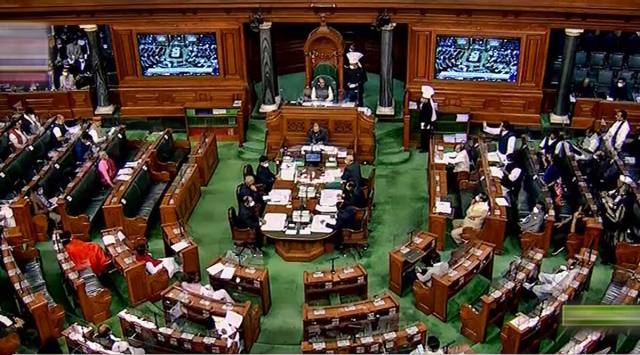Changes to the Act governing manufacturing, storage and sale of medicines in India through the Jan Vishwas Bill passed in the Lok Sabha on Thursday has led to a debate, with some saying that it will allow drug makers to get off lightly on charges of making substandard medicines. One of the amendments proposed under the Bill will allow compounding — paying a fine instead of facing imprisonment — for some offences.
The Jan Vishwas Bill was brought to Parliament with the aim of improving ease of doing business through amendments across 42 laws, doing away with some provisions of imprisonment or converting some fines to penalties that do not necessitate prosecution. The Bill will amend two sections of the Drugs and Cosmetics Act, 1940.

The first amendment seeks to change the punishment for a repeated offence of using a government analysis or test report for advertising a drug. The previous punishment was imprisonment up to two years or a fine of more than Rs10,000, which has now been proposed to only a fine, but more than Rs 5 lakh.
The second amendment allows for “compounding” of the punishment to one to two years imprisonment and a fine of more than Rs 20,000 for drugs not of standard quality (NSQ), as defined under Section 27 (d) of the 1940 Act. Compounding is a legal provision that allows one to pay a fine instead of undergoing criminal proceedings.
Section 27 of the existing Drugs and Cosmetics Act has provisions for punishments for different types of offences — a) adulterated or spurious drugs that lead to death or grievous injury carrying a sentence of up to life imprisonment, b) adulterated medicines that do not fall under the previous category of medicine manufactured without a licence carrying a sentence of up to five years, and c) spurious medicines other than the ones that fall under the first category carrying a sentence of up to seven years.
The amendment under the Jan Vishwas Bill deals with offences that are not covered by the first three sections, carrying up to two years of imprisonment.
The health ministry, in a clarification issued on Friday, said the amendment does not decriminalise or reduce the sentence under Section 27 (d), it allows for an alternate mechanism of compounding. The ministry said compounding will be allowed only for drugs that have not failed parameters considered being injurious to health, that do not contain toxic substances, that do not contain substance which reduce quality or strength of a drug, that haven’t been manufactured in unsanitary conditions, that haven’t been manufactured without a licence, and that do not have any misleading labels.
Story continues below this ad
However, activists have said that drugs not of standard quality as listed in Section 27 (d) are not really as safe and may still lead to bodily harm.
Dinesh S Thakur, an expert on drug regulation in India, in a tweet said: “The press release also claims that S. 27(d) (which prescribes criminal punishment of manufacturers of NSQ drugs) has not been “decriminalised”. Technically that’s correct since it makes the offence compoundable; i.e., pay the paltry fine and escape jail time.” He also pointed out that the statement of objective and reason accompanying the Bill says, “Besides decriminalisation of minor offences, the Bill also envisages rationalisation of monetary penalties…”
Prashant Reddy T, a lawyer specialising in drug regulation who works with Thakur, said: “Imprisonment is still applicable for drugs that are adulterated or spurious. However, companies will not need to face imprisonment for substandard drugs — or as the law defines it NSQ drugs — which are a big problem in India. And, they are not really harmless. Say, an antibiotic contains only 30% of the active ingredient mentioned on the pack, it will be considered an NSQ medicine. But incomplete course of antibiotic may not cure the person and also lead to a drug resistant bacteria emerging.”
Thakur, in his series of tweets, also explained that drugs that fail bacterial endotoxin tests are also considered to be NSQ. Endotoxins are bacterial particles that can lead to immune response such as fever and even anaphylactic shock.
Story continues below this ad
An industry expert, on condition of anonymity, said: “It has been a long standing demand of the industry that minor offences be decriminalised to reduce harassment of the business owners. Getting imprisoned is a big deal in society and sometimes, people lose their business by the time the court proceedings get over.”
They added: “This is meant only for drugs that do not conform to all the standards in the Indian Pharmacopeia. Say, for example, there is a problem with the dissolution or disintegration of a drug, there are some impurities, or if it fails an assay, it is considered to be NSQ. This compounding will allow companies to pay the fine instead of imprisonment in the very first offence itself. If the company repeats such offence, of course, strict action should be taken.”









